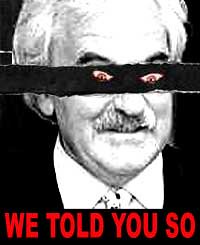Hubris
 As any professional footballer knows, when you reach your peak, you happen to be at your most vulnerable. When your body works at its optimum, you tend not to notice the small signs that should warn you to take care. You ignore the muscle tweaks that hint at something more serious in the future. And then, when your crowd roars you on, you make a turn just a little too quickly, you go over on your knee and your anterior ligament gives way. We call this hubris or excessive confidence in one’s own powers. You fly too close to the sun and your wings melt.
As any professional footballer knows, when you reach your peak, you happen to be at your most vulnerable. When your body works at its optimum, you tend not to notice the small signs that should warn you to take care. You ignore the muscle tweaks that hint at something more serious in the future. And then, when your crowd roars you on, you make a turn just a little too quickly, you go over on your knee and your anterior ligament gives way. We call this hubris or excessive confidence in one’s own powers. You fly too close to the sun and your wings melt.
Teams can also suffer the same condition. They weaken once they begin to take their superiority for granted. History teaches us that it happens to all the great civilisations and that decadence is born in strength. We saw it last night after Manchester United put three past Reading within the first six minutes. It looked like it would be a drubbing in the classical sense. Only, the truism about our finding weakness in strength again came true. Reading dominated the rest of the match, making the Premiership’s top team look poorly organised and lacking discipline. The late introduction of Wayne Rooney and Cristian Ronaldo introduced a little structure into United’s formation and eventually won them the match, although not until Reading came close to equalising in the final minute with the ball coming back off the bar.
After the match, I finally got around to watching the first part of ‘Blair: The Inside Story’, Michael Cockerell's documentary about the Blair years. It too reminded me that we often fail because we succeed. It also reminded me that unlike Margaret Thatcher, whose fall from office came about through her own slow passage towards hubris, so much of what Blair has done (and failed to do) came about because he appeared and acted invulnerable from the very moment he entered Downing Street. With Blair, the messianic swagger that we all now notice and mock was once less comic and far more interesting than it has become. It left him prone to the most enormous gaffs, such as the Millennium Dome project.
In John Major’s plan, the Dome was originally meant to be little more than a trade show; a new version of the Great Exhibition, showing the world the strength and variety of British Industry. Blair, the popularist politician, had to change it into an event ‘for the people’. He had the common touch and knew what people wanted. Or so he thought. The eventual failure of the Dome was rooted in the success of a Prime Minister confident in his own powers. Blair flew too close to the sun and even if his wings didn’t melt completely, they sagged considerably.
What Cockerell's documentary reminded me was that Blair is the Manchester United of politicians, displaying glimpses of greatness and ordinariness in equal measure. This is nowhere more apparent in the moments when Cockerell presents Blair as the male version of the late Princess of Wales. He captured the mood of the moment, conveying the despair of the nation, and yet this moment of perceived sincerity only led him to other acts seen as crass, manipulated, and glib. The shy looks to camera, his belief in his contact with ordinary people, the claim that ‘I’m a stand up guy’: Blair craved justification almost as much as Diana craved the acknowledgement that she was the wronged woman. He relied too heavily on the performance of personality over the performance of policy. Diana too became the victim of her own success, whether it was her increasing alienated within thHubrise royal family because of her popular appeal, or making high speed chases through Paris because of the demands of the media that obsessed over her.
Cockerell presented those early years of Blair’s government in terms that I can only put into footballing terms. Even moreso than Man Utd, Tony Blair’s governments resemble the pantomime of Real Madrid. So often it has had the chance to do something very great, only to end in the mundane bickering of enormous egos. It also convinced me that football may be a wonderful guide to the theory of hubris but for its practical application you have to look to the politicians among whom Tony Blair is its master practitioner.









No comments:
Post a Comment